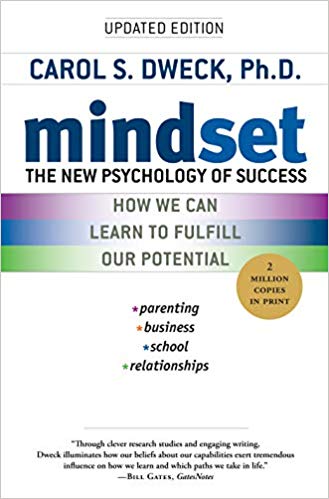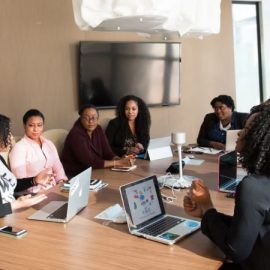

This article is an excerpt from the Shortform summary of "Mindset" by Carol Dweck. Shortform has the world's best summaries of books you should be reading.
Like this article? Sign up for a free trial here .
Do you believe you have the potential to grow? If you do, you likely have a growth mindset. If you believe that your intelligence and abilities are fixed, you likely have a fixed mindset.
We’ll cover Carol Dweck’s growth and fixed mindsets and why the belief in your own potential to grow is one of the most powerful mindsets you can have.
The Potential to Grow
One reason people with a fixed mindset feel they have to be perfect is that they see every test or evaluation as a permanent measure of their ability. This demonstrates that they don’t believe in their potential to grow.
For example, in a study of fifth graders, researchers told them that a certain test could measure their ability. Although the researchers provided no other information about the test, the fixed-mindset students concluded that it could not only measure how smart they were, but it could also measure how smart they’d be as adults, essentially defining them forever. Growth-minded students didn’t believe a test could measure how smart they were, nor did they believe it could predict how smart they’d be in the future because their intelligence was always growing. They believe in their potential to grow.
Fixed-mindset educators do in fact believe you can measure someone’s ability and determine their potential. But those who’ve tried to do that have been wrong repeatedly. Examples of people who were told they lacked potential include Charles Darwin, Marcel Proust, Ray Charles, Elvis Presley, Lucille Ball, and Jackson Pollock.
By definition, you can’t predict potential, if it’s understood as the capacity to develop over time with effort and training. It’s impossible to be certain of how far anyone can go with effort and training. For example, many of artist Paul Cezanne’s early paintings were terrible. He needed time and effort to develop. You need effort and patience for your potential to grow.
The potential to grow may be a more important indicator for future achievement than current success:
- When NASA solicited applications for astronauts, it looked for people who came back and learned from failures, rather than those with a string of successes.
- As CEO of General Electric, Jack Welch chose executives based on their capacity to develop.
- Famed ballet teacher Marina Semyonova chose to work with students who took criticism as motivation to improve.
Your mindset shapes how you learn, cope with setbacks, advance in your career, and relate to others. Here’s how the two mindsets compare.
Fixed mindset: When you have a fixed mindset, you believe your abilities are unchangeable. You were born with certain traits and a certain amount of intelligence and that’s that. Many people are trained in this mindset from an early age — for instance, by a teacher who believes your IQ determines everything: You’re either smart or you’re dumb; you can learn or you can’t. When you view your abilities as unchangeable, you feel you must constantly prove yourself. If people get a set amount of intelligence, you want to prove you have a lot, although you secretly worry you were shortchanged. This doesn’t demonstrate a belief in your potential to grow.
Growth mindset: When you have a growth mindset, you believe the abilities you’re born with are a starting point. You can get smarter and grow with hard work, persistence, and the right learning strategies. You have a passion for learning, welcome mistakes as opportunities to learn, and seek challenges so you can stretch. This demonstrates a belief in your potential to grow.
The two different mindsets lead to different sets of thoughts and actions, and two different paths. They dictate people’s aspirations; how they see success, failure, and effort; and what that means in school, sports, work, and relationships. Here are some ways the mindsets shape your life.
Success, Failure, and the Potential to Grow
In the fixed mindset world, success is about proving to yourself and others that you’re smart and talented. If you fail, it means you’re not smart or talented, therefore failure is intolerable. Failure is any type of setback: a bad grade, losing a competition, not getting the job or promotion you want, being rejected. Effort is a negative — if you need it, that means you’re not smart.
In the growth mindset world where you can change, success is about stretching yourself, learning, and improving. Failure is not seizing an opportunity to learn, not striving for what’s important to you, not reaching for your potential. Effort is a positive — it helps you get smarter and increase your abilities. There is potential to grow.
Perfection Versus Learning: Grow Your Potential
For people with fixed mindsets, perfection is essential. To feel smart, they not only have to “get it” right away, they have to be perfect at it.
When researchers asked students from grade school to college age when they felt smart, fixed-mindset students said it was when they could do something quickly without making any mistakes. For growth-minded people, it wasn’t about perfection. They said they felt smart when they tried hard and made progress or were able to do something they couldn’t do before. Feeling smart was about learning. This is how to grow your potential.
———End of Preview———

Like what you just read? Read the rest of the world's best summary of "Mindset" at Shortform . Learn the book's critical concepts in 20 minutes or less .
Here's what you'll find in our full Mindset summary :
- The difference between a growth and a fixed mindset
- How a fixed mindset keeps you back throughout your life: education, relationships, and career
- The 7 key ways to build a growth mindset for yourself






